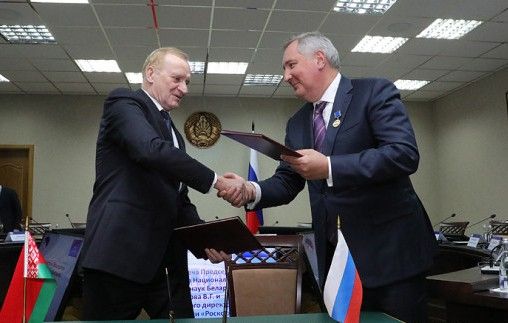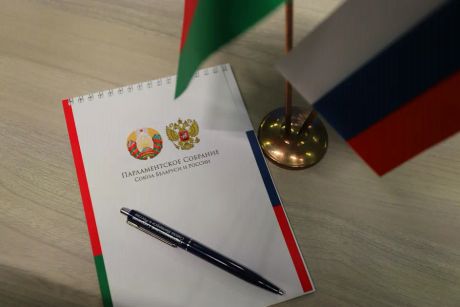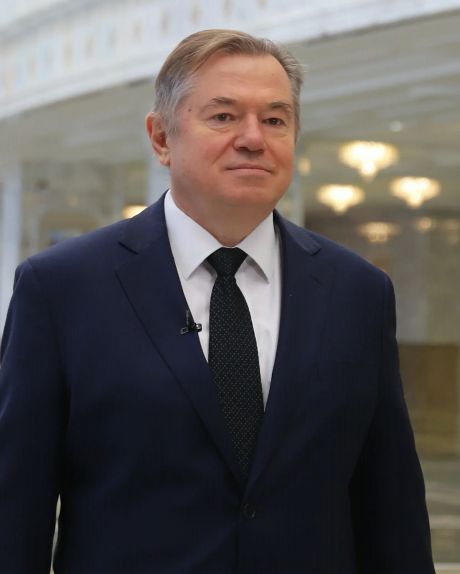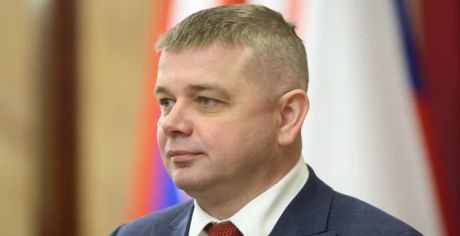Belarus, Roscosmos to expand orbital group of satellites
15:42, 22 January

Photo: BELTA
The National Academy of Sciences of Belarus and Russia's Roscosmos State Corporation have signed an agreement on expanding the joint orbital group of satellites for the remote sensing of Earth, BelTA has learned.
- Share on Facebook
- Share on VK
- Share on Twitter
The Belarusian satellite and a similar Russian satellite Canopus-B No. 1 make up a joint orbital group now. The National Academy of Sciences of Belarus and Roscosmos agreed to expand the group by adding other Russian satellites Canopus-B and Canopus-B-IK. After that the orbital group will be comprised of seven satellites. “By putting together these satellites, we will be able to get information not once in 16-17 days, but virtually in the real-time mode,” Chairman of the Presidium of the National Academy of Sciences of Belarus Vladimir Gusakov said. In his words, the information will be exchanged free of charge and on a parity basis. The Russian side will use data collected by the Belarusian satellite, while Belarus will take advantage of information obtained by the Russian satellites.
In addition to that, Russia and Belarus are now working on a new joint super-high-resolution satellite for the remote sensing of Earth. The resolution of the existing Belarusian satellite is 2 meters, while the new satellite will have the resolution of 35 centimeters. The work on the outline sketch is nearing completion. This satellite is to make part of the joint orbital group in the future.
Director General of Roscosmos State Corporation Dmitry Rogozin emphasized that a steadily operating orbital complex is needed for sustainable economic growth of the countries. “The implementation of the agreements between our countries within the framework of the Union State is of paramount importance. We should not just discuss them, we should embark on fulfilling them,” he said. Dmitry Rogozin expressed hope that the parties will make great strides in this matter.
“All in all, collaboration between Roscosmos and Belarusian companies specializing in optics, mechanics and microelectronics holds a lot of promise when it comes to development and upgrade of orbital groups,” Dmitry Rogozin said.
A reminder, the lifetime of the acting Belarusian satellite in orbit has been extended to the end of 2021. This means almost twice the estimated lifetime of its application and is equivalent to placing a second satellite into orbit. The satellite is of high importance for many industries. In 2019, more than 2,000 packages of high-resolution remote sensing data were produced. Together they cover an area of more than 2 million square kilometers and are worth some $4 million.






